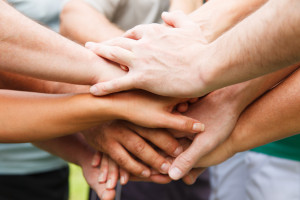Contributor: Crystal Karges, MS, RDN, IBCLC, Special Projects Coordinator at Eating Disorder Hope/Addiction Hope
 Addictions often involve manipulative and secretive behavior, which overtake how a person interacts and engages with others. To add to the complexity of addictions, being under the influence of drugs or alcohol can severely impair cognition and mental awareness, which can also cause destructive behaviors that destroy relationships.
Addictions often involve manipulative and secretive behavior, which overtake how a person interacts and engages with others. To add to the complexity of addictions, being under the influence of drugs or alcohol can severely impair cognition and mental awareness, which can also cause destructive behaviors that destroy relationships.
Even the most well-intentioned and well-meaning individual cannot have a successful relationship when under the influence of drugs and/or alcohol.
First-Hand Consequences of Addiction
If you have a loved one who is struggling with addiction, you have likely seen first-hand the consequences that result in relationship from addiction. Perhaps your loved one has been involved in behaviors that have broken your trust. This may involve manipulation, lying, deceit, and more.
You may have attempted to help your loved one break away from their addiction only to realize your assistance has only further enabled destructive behaviors. This may cause you to feel resentful, frustrated, and angry towards your loved one, as well as confused, saddened, and distressed.
Maintaining Relationships Is Difficult with Addiction in the Way
 Attempting to maintain a relationship with someone with an active addiction can be overwhelming to say the least. It can be hard to find the balance between offering support and love while establishing appropriate boundaries that help your loved one recover.
Attempting to maintain a relationship with someone with an active addiction can be overwhelming to say the least. It can be hard to find the balance between offering support and love while establishing appropriate boundaries that help your loved one recover.
If you find yourself in this situation, be sure to reach out to a professional, such as a marriage and family therapist, who is specialized in addiction.
Working with a Therapist
These professionals can be invaluable helping you navigate through this often confusing process and guide you in ways that can help restore a relationship with your loved one through their addiction recovery. If your family member is currently seeking recovery and treatment for recovery, you may consider discussing if family therapy is an option available through the program your loved one is in.
Many treatment programs for addiction offer family support and integrate family members as appropriate. This can also be a beneficial way to begin healing your relationship that has been damaged by an addiction lifestyle.
Dealing with Shame and Guilt
 What if you are the addict recovering from addiction? You may be struggling with what has become of your relationships as the result of your lifestyle and addiction. It can be difficult to feel as though you have lost the trust and respect of your family members.
What if you are the addict recovering from addiction? You may be struggling with what has become of your relationships as the result of your lifestyle and addiction. It can be difficult to feel as though you have lost the trust and respect of your family members.
You may be experiencing shame, guilt, even self-blame for any problematic issues that have resulted in your family. The most important thing you can do is to resolve these situations is prioritize your recovery and treatment. By working towards healing from your addiction, you can begin to repair damage that has been created in your relationships.
Admitting Your Struggles
Stepping forward to receive help and admitting your struggles with an addiction is not an easy feat but it may put things in perspective by considering the alternative. What would happen if you continued down the path of an addictive lifestyle?
For some individuals, an addiction is a means of coping with painful situations or overwhelming experiences. There are other ways that you can find healing, freedom, and ultimately learn to thrive in your life.
Repairing Damaged Relationships
 Repairing a damaged relationship begins by taking responsibility for your actions, admitting your need for help, and seeking out the appropriate care and treatment. Relationships can be repaired, and restored and there is hope for healing, no matter how slow or long the process takes. If you are involved in a treatment program, consider incorporating your family members in your treatment as appropriate.
Repairing a damaged relationship begins by taking responsibility for your actions, admitting your need for help, and seeking out the appropriate care and treatment. Relationships can be repaired, and restored and there is hope for healing, no matter how slow or long the process takes. If you are involved in a treatment program, consider incorporating your family members in your treatment as appropriate.
This might involve family therapy or support groups that encourage all members to process their emotions and experiences in a safe and healing environment. Sometimes having the guidance of a moderator, such as a therapist or counselor, can be an invaluable tool in moving forward with family discussion. Talk with your treatment team about what options might be available for you.
Addictions are difficult and complex disorders to work through because they involve more than one person and various facets of being. However impossible it may seem though, there is hope for healing and recovery through this journey.
Community Discussion – Share your thoughts here!
What are ways that you have found healing in your family relationships through the process of addiction recovery?
Last Updated & Reviewed By: Jacquelyn Ekern, MS, LPC on July 7th, 2015
Published on AddictionHope.com
